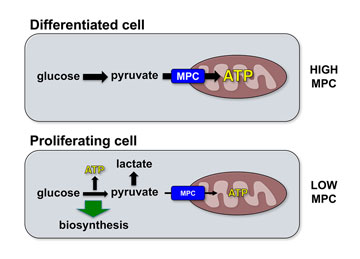Research
Functions for Evolutionarily Conserved Mitochondrial Proteins
Mitochondria are dynamic and complex organelles that play a central role in all aspects of biology, including energy production, intermediary metabolism, and apoptosis. These broad cellular functions also place mitochondria as a central player in human health. Mitochondrial dysfunction is associated with a wide range of diseases, including cancer, type 2 diabetes, and most neurodegenerative disorders. As a result of these critical activities, many efforts have focused on identifying and characterizing the proteins that comprise the mitochondrial proteome, with over 1,000 proteins identified to date in mammals. Remarkably, however, one-fifth of these proteins remain largely uncharacterized. These include many proteins that are highly conserved throughout eukarya, a strong indication that they perform a fundamentally important function. Our research, in close collaboration with Jared Rutter’s lab in the Biochemistry Department, is focused on functional studies of key uncharacterized mitochondrial conserved proteins (MCPs). We are conducting systematic and detailed characterization of MPC function in two simple genetic systems, yeast and Drosophila, followed by more focused studies in mammalian cells and mice. Current studies are underway characterizing the functions of the Mitochondrial Pyruvate Carrier (MPC), which we reported in a Science paper several years ago. We have recently shown that the MPC is both necessary and sufficient for the proper levels of intestinal stem cell proliferation, reported in Nature Cell Biology. Our current studies are aimed at characterizing the roles of the MPC in intestinal homeostasis and function. Other studies are focused on a novel mitochondrial kinase and its apparent role in maintaining proper sterol levels. Our goal in this project is to provide detailed insights into mitochondrial protein function that can guide our understanding of how these proteins impact human health and disease.


